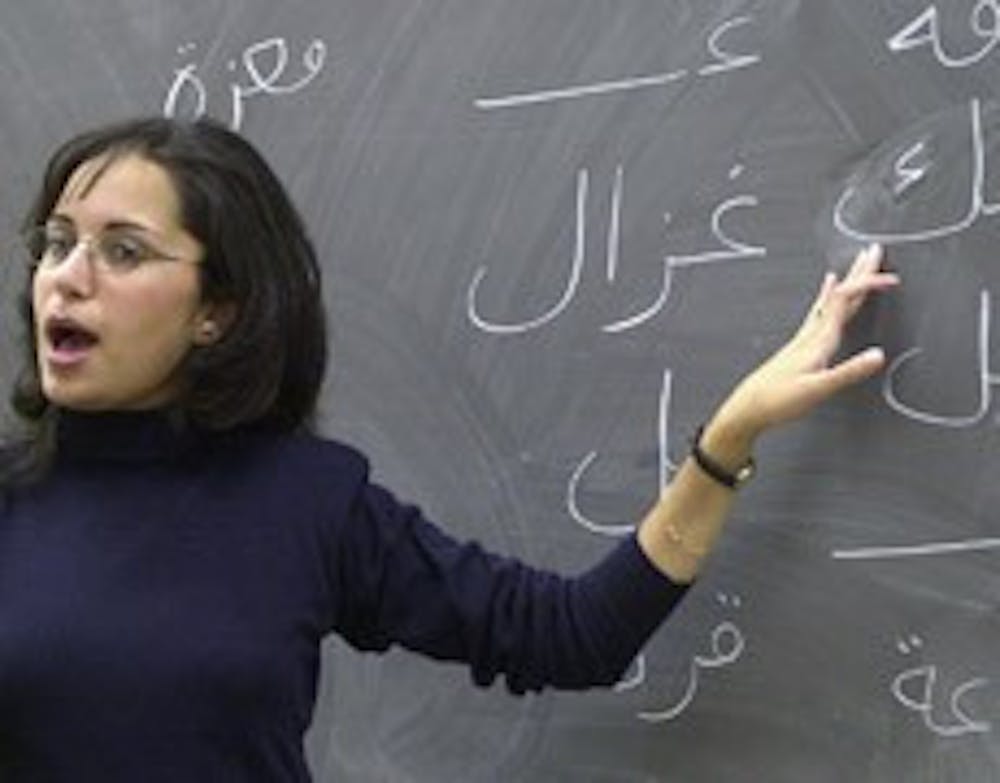The number of Arabic language students at U.S. universities has skyrocketed since Sept. 11 and it is no exception at ASU.
With a certificate program in Arabic studies waiting to be approved by the University provost, the ASU Arabic program hopes to attract even more students interested in the language.
The certificate will provide educational and cultural diversity that will enrich ASU students and prepare them for the fast-growing job market for Arabic speakers.
"Salaries for translation are really high today," said Souad Ali, an ASU assistant professor of Arabic and Middle Eastern studies.
Nowadays, Arabic speakers can earn as much as $100,000 per year, as listed on the popular job-search engine monster.com.
There is more governmental employment than ever before available for Arabic speakers, Ali said.
One of the reasons why the Arabic program decided to propose a certificate rather than a minor is because surveys conducted in businesses worldwide showed that a certificate is preferred, Ali said.
"The certificate is very significant for employment, businesses, tutoring, those having assignments in the Middle East and journalists," he said.
The ASU Senate approved the certificate Aug. 28 and it is now in the hands of the University provost. If approved, the program will start next fall or possibly sooner.
Ali, who created the certificate program, said it will be an intense curriculum for those enrolled. All of its 18 credit hours will be based on upper-division courses. In order to qualify, a student will either have to pass the intermediate Arabic level classes, complete one year of study abroad at the intermediate level or pass a proficiency exam.
According to the Department of Languages and Literatures enrollment report, only 14 students enrolled in 1996, when the Arabic program started. Now, there are almost 200 students. All the Arabic classes offered during the fall semester are full.
Even though the program only has four current faculty members, a high level of quality has always been a priority for the Arabic courses, Ali said.
Despite ASU not having a major or minor in the language, students taking Arabic courses have been accepted to Ivy League schools, such as Georgetown University, to continue their studies, Ali said.
Besides employment opportunities, some students are interested in studying Arabic for a better understanding of the ongoing conflicts in the Middle East.
"If one wants to gain understanding of Islam and Arabic culture, I believe learning Arabic should be a priority," said Adin Armey, a political science sophomore.
Armey said one of the reasons he enrolled in Arabic 101 this fall is because of the Arabic writing style.
"Beautiful calligraphy and scripts made Arabic a very enticing language for me," he said.
While Armey enjoys getting a better understanding of Arabic culture and language, he said he is not neglecting his future career options and is considering enrolling in the certificate program once he passes the intermediate level courses.
"As a political science major I have to truly think about what the job field holds for me," Armey said.
"Learning Arabic will open new career possibilities and will create the ability for making a difference in one of the most important regions today."
Reach the reporter at: ljiljana.ciric@asu.edu.




